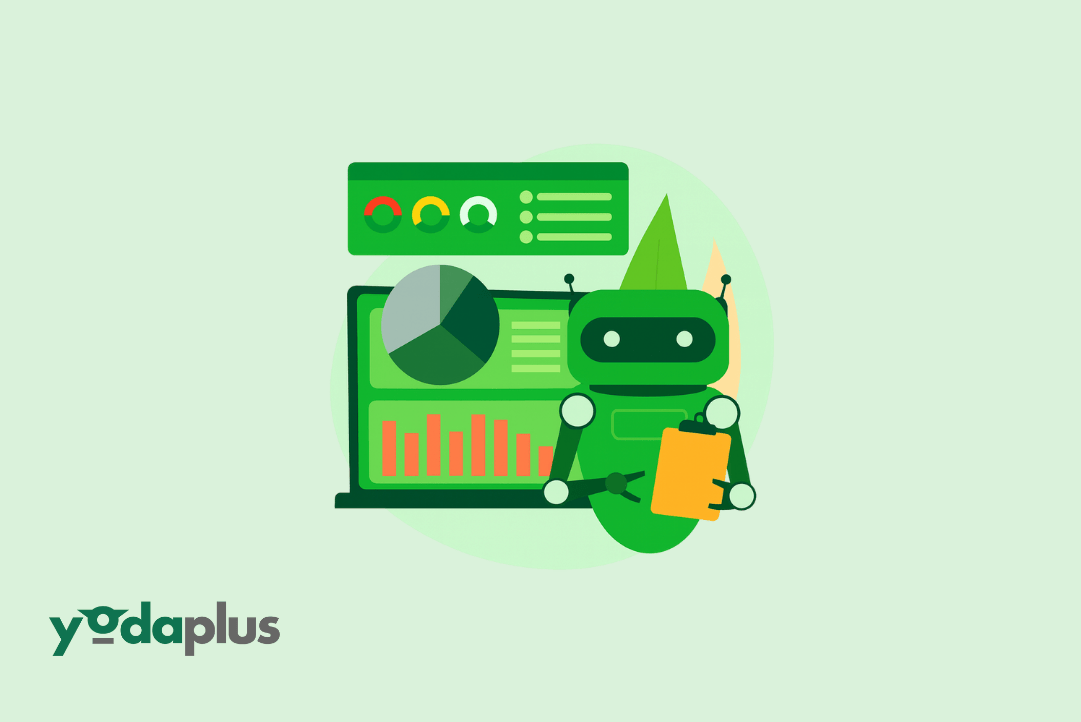
Role of Evaluation Agents in Autonomous Learning Loops
August 11, 2025 By Yodaplus
Autonomous AI systems are designed to learn, adapt, and improve without constant human supervision. They operate in dynamic environments where decisions need to be made quickly and accurately. One of the most important parts of this self-improvement process is the evaluation stage. In autonomous learning loops, evaluation agents act as quality controllers, making sure the system is learning the right lessons and avoiding repeated mistakes. These agents are not just optional features in agentic AI. They are essential for making sure autonomous agents and multi-agent systems remain reliable, efficient, and aligned with their goals. By combining machine learning, generative AI, and AI workflows, evaluation agents create a feedback cycle that leads to continuous performance improvement.
What Are Evaluation Agents in AI?
An evaluation agent is an intelligent component within a workflow agent system. It monitors, measures, and validates the performance of other AI agents in an autonomous system. Think of it as a digital auditor. Instead of simply watching results, it uses data mining and natural language processing (NLP) to interpret output, assess quality, and identify improvement areas.
In autonomous AI, these agents play a role similar to peer reviewers in academic work. They do not produce the main content or decisions but make sure the output meets certain standards. With the help of AI technology and advanced models like LLMs, evaluation agents can assess complex outputs across different domains.
Why Evaluation Agents Matter in Autonomous Learning Loops
An autonomous learning loop is the cycle in which an AI system collects data, learns from it, applies the learning, and then measures results to make further adjustments. Without evaluation, this loop risks reinforcing errors.
Here’s why evaluation agents are so important:
- Quality Control
They verify whether the results from intelligent agents align with expected goals. This is critical for applications in AI solutions like finance, supply chain, or healthcare, where wrong outputs can have serious consequences. - Bias and Error Detection
Using data mining and AI applications, evaluation agents can identify patterns that indicate model bias or recurring mistakes. - Performance Tracking
They compare new outputs to historical benchmarks, making sure that performance improves over time. - Safety in Autonomous Systems
In multi-agent systems, one poorly performing agent can create a chain reaction of errors. Evaluation agents help prevent this by flagging issues before they spread.
How Evaluation Agents Work
Evaluation agents in agentic frameworks generally follow a step-by-step process:
- Input Monitoring
They review the data coming into autonomous agents to ensure quality before it is processed. - Output Validation
After the AI generates results, evaluation agents assess accuracy, completeness, and compliance with the task. - Feedback Generation
They send structured feedback to the learning models. In AI workflows, this feedback often feeds directly into retraining cycles. - Goal Alignment Check
Using MCP (Model Context Protocol) or similar coordination methods, evaluation agents ensure every output supports the larger system objectives. - Continuous Improvement Loop
The system updates its decision-making patterns based on evaluator feedback, making the autonomous AI smarter over time.
Role in Multi-Agent and Workflow Systems
In multi-agent systems, different agents perform specialized roles. For example, a Crew AI setup might include agents for research, planning, execution, and monitoring. The evaluation agent interacts with each of these, ensuring the AI workflows remain efficient.
In workflow agents, the evaluation role is even more critical. Since these agents often handle business-critical processes, errors can disrupt the entire chain. The evaluation agent checks each step, making sure outputs are correct before they move forward.
AI Technologies Behind Evaluation Agents
Modern evaluation agents use a mix of artificial intelligence services to operate effectively:
- Machine Learning models to identify accuracy patterns.
- Generative AI to test creative and strategic outputs.
- NLP to evaluate text-based content.
- Data mining to detect hidden performance trends.
- LLMs for advanced reasoning and interpretation.
By combining these capabilities, evaluation agents can work across industries, from customer support automation to complex AI applications in finance, retail, and logistics.
Real-World Applications
- Customer Service Automation
Evaluation agents can review chatbot responses to ensure they follow tone guidelines and give accurate answers. - Financial Decision Systems
In autonomous AI for trading, evaluation agents validate predictions before trades are made. - Content Creation
For generative AI tools, evaluation agents score creative outputs for originality, style, and relevance. - Supply Chain Optimization
In logistics AI workflows, they confirm that route optimizations are actually reducing delivery times and costs.
Building Strong Evaluation Agents
For organizations looking to create or enhance evaluation agents, here are a few best practices:
- Define Clear Metrics
Decide how success is measured before building the system. - Integrate with MCP or Similar Protocols
This ensures the evaluation agent communicates effectively with other components. - Leverage Multi-Agent Collaboration
Let the evaluation agent interact with planning, execution, and monitoring agents for better feedback. - Automate Reporting
Use AI technology to automatically generate performance reports for human review.
The Future of Evaluation in Autonomous AI
As autonomous systems become more complex, evaluation agents will play an even bigger role. The next generation will not just assess results but also predict risks before they occur. Advances in AI technology and artificial intelligence solutions will make them proactive partners in decision-making rather than passive reviewers.
At Yodaplus, we explore how evaluation agents can be integrated into agentic AI and autonomous AI frameworks to ensure safer, smarter, and more reliable outcomes. In agentic AI, the goal is not just self-improvement but safe, reliable, and goal-aligned improvement. Evaluation agents are the key to making that possible. They close the loop in learning cycles and ensure that every update leads to smarter, more capable autonomous agents.